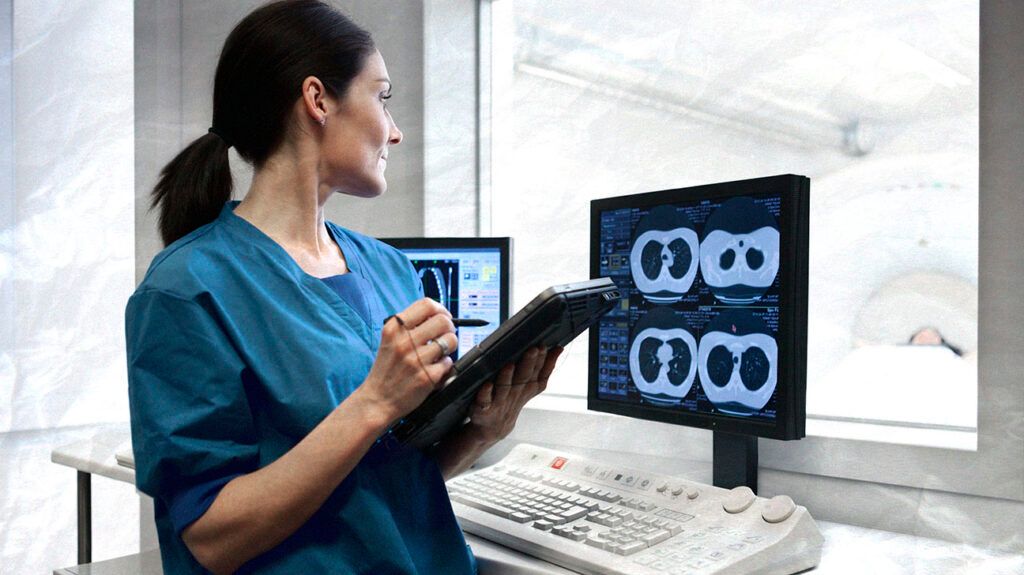Undifferentiated small round cell sarcoma (USRCS) is a type of cancer affecting the bones and soft tissue. This rare form of cancer can affect people of all ages.
USRCS is an extremely rare sarcoma and can occur throughout the body. It may affect bones in the pelvis or lower extremities, while it can also occur in soft tissues in the chest or stomach. Certain genetic mutations can increase the risk of this disease.
This article will take a deeper look into undifferentiated small round cell sarcoma. Keep reading to learn about causes, symptoms, treatment options, and more.

In the United States, USRCS affects
Sarcomas are rare forms of cancer that
USRCS can occur in both children and adults and may cause tumors
- bones in the lower extremities
- the pelvic bone
- bones in the chest
- the trunk
- tissues in the extremities
- head and neck tissues
In certain cases, USRCS can cause bones to fracture.
Other symptoms may include:
- new lumps or masses
- unexplained pain that does not resolve on its own
- bloody stool or vomit
People with USRCS
Certain people may have a higher risk of developing USRCS.
For example, this type of cancer is
Changes to certain genes may cause or increase a person’s risk of developing USRCS. One
A doctor
- a physical examination
- medical history
- imaging scans such as an MRI, CT, or PET
- X-rays
- blood analysis
- bone scans
- bone marrow biopsies
If a doctor suspects the presence of USRCS, they may order a biopsy. This involves taking tissue samples and sending them to a laboratory for further testing.
Certain cell types
When diagnosing USRCS, doctors will also determine the cancer’s stage. This indicates how much the disease has spread throughout the body.
In
Stage 4 is the most advanced form of USRCS. By this stage, the cancer has spread to the lymph nodes. It may also have spread to distant organs such as the lungs.
Treatment for USRCS may vary between individuals. Choosing the right treatment depends on a person’s overall health and disease stage. Treatment options for USRCS
- chemotherapy
- radiation therapy
- surgery
- monoclonal antibody therapy
- immunotherapy
- targeted therapy
In some instances, doctors may perform genetic testing of a person’s USRCS tumor. This
USRCS is an extremely rare disease, and survival rates vary according to age and disease stage.
The 5-year survival rate for USRCS can vary between 43% and 72%. However, the likelihood of a full recovery depends on many factors, such as age and disease stage.
An early USRCS diagnosis can improve a person’s likelihood of recovering from this disease.
Anyone noticing symptoms of USRCS needs to speak with a doctor as soon as possible. Prompt diagnosis and treatment can increase the likelihood of overcoming USRCS.
The following are answers to some questions people frequently ask about USRCS.
What is undifferentiated small round cell sarcoma?
USRCS is a cancer that
What is the survival rate for undifferentiated sarcoma?
Some researchers estimate that the 5-year survival rate for USRCS can vary between 43% and 72%. However, this depends on several factors, including age and disease stage.
What is undifferentiated sarcoma?
An undifferentiated tumor is a tumor that does not resemble typical tissue. A sarcoma is a rare type of cancer that can affect bones or soft tissue.
How do doctors treat undifferentiated sarcoma?
Treatments for undifferentiated sarcoma may vary depending on the individual. Treatment options
Cancer resources
To discover more evidence-based information and resources for cancer, visit our dedicated hub.
Undifferentiated small round cell sarcoma (USRCS) is a rare form of cancer. It may develop within the bones or soft tissues throughout the body.
This type of cancer is extremely rare. Researchers believe that certain genetic mutations may increase the risk of developing USRCS. Treatment options can range from chemotherapy and radiation to immunotherapy or targeted drugs.
Receiving an early diagnosis can increase a person’s likelihood of fully recovering from USRCS.
